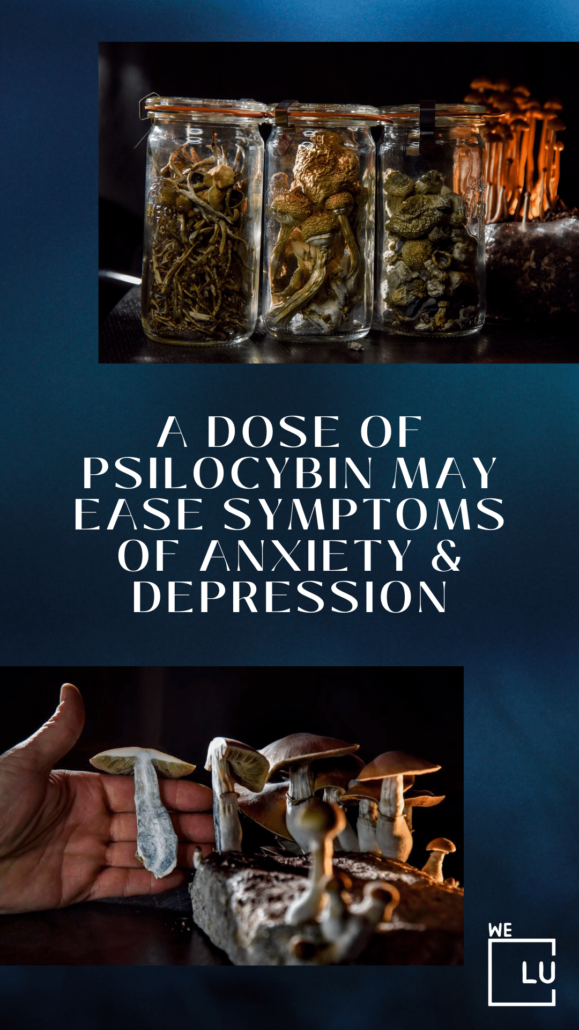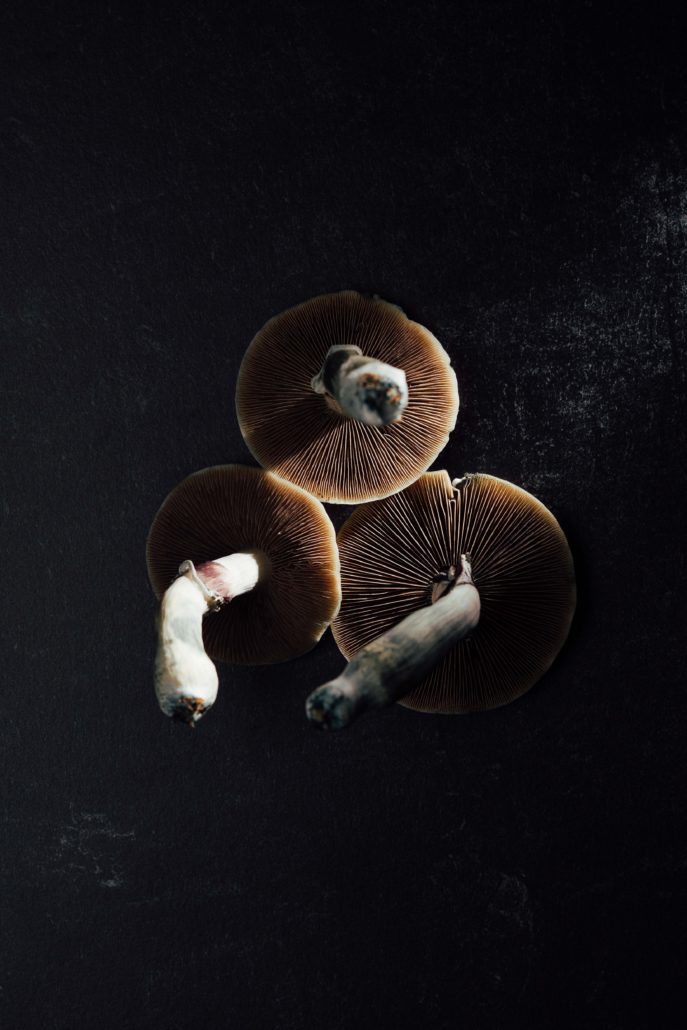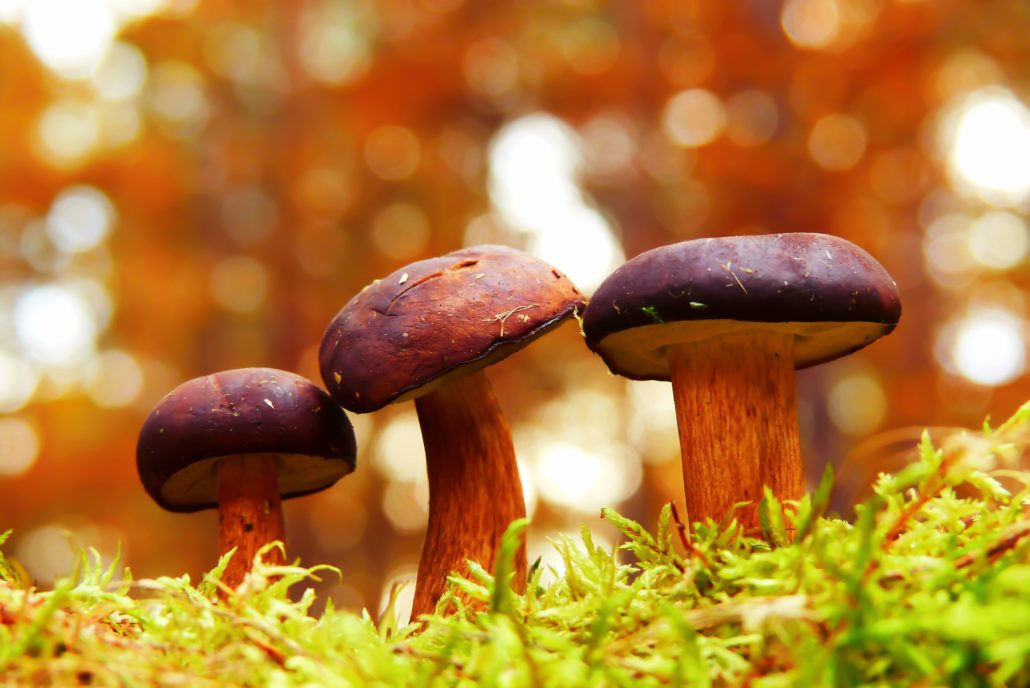WARNING: Psilocybin may be considered an illegal substance in certain regions, and we do not endorse or advocate its use where prohibited by law. This guide aims to prioritize the safety of individuals who use this substance in compliance with legal regulations.
Understanding Magic Mushrooms and Psilocybin
Magic mushrooms, scientifically known as Psilocybe fungi, are renowned for containing psilocybin, a compound linked to psychedelic experiences. However, understanding the potency and dosing of dried magic mushrooms or psilocybin-based products requires insight into the psilocybin content in the most common Psilocybe species.
Identifying the Active Compound
Contrary to common belief, psilocybin itself isn’t the primary active drug in magic mushrooms. Instead, it functions as a prodrug—an inactive compound that the body metabolizes into an active drug. Upon consumption, psilocybin transforms into psilocin, the active substance responsible for inducing psychedelic effects. These effects stem from psilocin’s structural similarity to serotonin, a neurotransmitter in the brain.
How Many Dose of Psilocybin is in Magic Mushrooms?
The quantification of psilocybin in most magic mushrooms remains untested, primarily due to the absence of a legal and regulated framework for such analyses. Nonetheless, published data on Psilocybe mushroom species offers some insights into psilocybin content, aiding in establishing dosing recommendations.
Research findings of the typical magic mushroom species like Psilocybe cubensis reveal varying psilocybin contents, ranging from 0.5% to 1.0% total psilocin. On average, these mushrooms contain about 0.7% total psilocin by weight. Notably, this amount roughly equates to around 1% psilocybin. It’s important to note that psilocybin levels can significantly differ among samples of the same species and across various species.
Effects of Different Dose of Psilocybin
Microdose Psilocybin : 1 gram
At 1% psilocybin content, ingesting one gram of magic mushrooms constitutes a low but noticeable dose. While not a microdose, this amount typically induces effects such as enhanced senses and subtle euphoria rather than significant visual alterations or a departure from reality.
Medium Dose: 1.75 grams
Taking 1.75 grams—about half an eighth ounce of dried mushrooms—equals approximately 17.5 mg of total psilocybin content. This dosage generally results in perceptual changes, including visual alterations and heightened euphoria, but might not elicit profound shifts in self-perception or intense psychedelic experiences.
High Dose: 3.5 grams (an eighth ounce)
Consuming an eighth-ounce or 3.5 grams of dried mushrooms delivers around 35 mg of psilocybin. This quantity induces a robust psychedelic experience, causing significant cognitive distortions, perceptual changes, and potential difficulties in navigating reality, especially during peak effects.
Ultra-High Dose: 5 grams
A five-gram dosage of magic mushrooms containing approximately 50 mg of psilocybin at 1% content leads to an intense, overwhelming, and potentially indescribable experience. Termed the “heroic dose,” it often results in complete ego dissolution and profound alterations in perception. Only experienced individuals, preferably in a safe environment, attempt doses of this magnitude due to their overwhelming nature and potential intensity.
Observations from Clinical Trials
Comparisons between the earlier mentioned doses and descriptions with those observed in controlled human clinical trials have shown noteworthy correlations. Pioneering studies at Johns Hopkins University administered controlled psilocybin doses to patients, revealing that higher doses—approximately 20-30 mg—often elicited what they formally defined as a “mystical-type experience.” This experience was akin to what might be termed a “full-blown psychedelic experience” in everyday terms. These doses fell between the medium and high ranges in the dosage guide mentioned earlier. Consequently, a complete eighth-ounce, or 3.5 grams, of dried Psilocybe cubensis likely contains a higher psilocybin content than the doses employed to induce such mystical-type experiences in controlled clinical settings consistently.
Administration Guide for Magic Mushrooms
Adhering to the principle of “Start low, go slow” is vital when experimenting with a new psychoactive substance like psilocybin. To begin, commence with no more than one gram of dried mushrooms or 10 mg of psilocybin, equivalent to a low dose. Gradually increase your dose every 25 minutes, advancing cautiously only once you feel at ease with lower doses. Always ensure a secure, comfortable setting when consuming psilocybin, preferably with supervision or professional support available in case of any difficulties, as demonstrated in the Johns Hopkins studies. The effects of psilocybin and similar psychedelics are highly influenced by your mental and physical state as well as the environment—a concept referred to as “set and setting.”
Upon reaching the “medium dose” range or higher, it becomes crucial to exercise heightened caution. Remember: the experiences you undergo might have lasting effects. Participants from the Johns Hopkins trials frequently described their experiences within the 20-30 mg range as profoundly significant, comparable in importance to life-changing events like the birth of their first child.

Skip To:
Learn More:
- What Does Depression Feel Like? Symptoms and Early Signs
- Why Am I So Sad? Causes and Top 10 Coping Tips for Depression
- What is Mild Depression? Symptoms and Treatment
- What is Crippling Depression? Learning How To Deal With Crippling Depression
- Atypical Depression. What Is It? Symptoms and Treatment
- Learn How to Cope with Depression. 10 Ways to Cope with Depression.
- Manic Depression Vs Bipolar. Are They The Same?
- Situational Depression Vs Clinical Depression, Symptoms, Causes, and Treatment
- Signs Of Depression In Women, Symptoms and Treatment
- Effective Depression Treatment, Depressive Disorder Symptoms, Types, and Causes
Get Help. Get Better. Get Your Life Back.
Searching for Accredited Dual Diagnosis Mental Health Centers Near You?
Even if therapy failed previously, or are in the middle of a difficult crisis, we stand ready to support you. Our trusted behavioral health specialists will not give up on you. When you feel ready or just want someone to speak to about counseling alternatives to change your life call us. Even if we cannot assist you, we will lead you to wherever you can get support. There is no obligation. Call our hotline today.
FREE 24/7 Dual Diagnosis Mental Health Services HotlineAnxiety Fact Sheet
Anxiety Overview
A mental health condition marked by intense feelings of worry, anxiety, or fear that interfere with daily activities. Panic attacks, obsessive-compulsive disorder, and post-traumatic stress disorder are a few examples of anxiety disorders.
The inability to put aside worry, restlessness, and stress that is out of proportion to the severity of the incident are among the symptoms.
Counseling or medicine, including antidepressants, are used as forms of treatment.
Anxiety Symptoms
Behavioral: hypervigilance, irritability, or restlessness.
Cognitive: lack of concentration, racing thoughts, or unwanted thoughts.
Whole body: fatigue or sweating
Also common: anxiety, excessive worry, angor animi, fear, insomnia, nausea, palpitations, or trembling
Anxiety Treatment
- Support group: A place where those pursuing the same disease or objective, such as weight loss or depression, can receive counseling and exchange experiences.
- Cognitive behavioral therapy: A conversation treatment that aimed to change the negative attitudes, actions, and feelings connected to psychiatric discomfort.
- Counseling psychology: A subfield of psychology that handles issues with the self that are connected to work, school, family, and social life.
- Anger management: To reduce destructive emotional outbursts, practice mindfulness, coping skills, and trigger avoidance.
- Psychoeducation: Mental health education that also helps individuals feel supported, validated, and empowered
- Family therapy: psychological counseling that improves family communication and conflict resolution.
Depression & Anxiety Statistics
It’s critical to understand the distinction between anxiety and depression. Anxiety, in its most basic form, is an excessive feeling of worry, whereas depression, in its most basic form, is an excessive feeling of worthlessness and hopelessness. It is conceivable for someone to experience depression and anxiety simultaneously.
6.8 million
GAD affects 6.8 million adults, or 3.1% of the U.S. population, yet only 43.2% are receiving treatment.
Source: National Institute on Mental Health
19 million
Nineteen million adults experience specific phobias, making it the most common anxiety disorder in America.
Source: ADAA, 2020
17.3 million
Major depressive disorder affects approximately 17.3 million American adults, or about 7.1% of the U.S. population aged 18 and older.
Source: National Institute of Mental Health

Understanding the Impact of Psilocybin Doses on Anxiety and Depression
Dosage Guidelines
Recent research highlights the potential benefits of microdosing psilocybin—a hallucinogen renowned for its mood-enhancing and mental health benefits.
In a study published in Nature-Scientific Reports on June 30, it was observed that individuals who microdosed psilocybin reported notable improvements in stress, anxiety, and depression symptoms over 30 days compared to those who did not. The study encompassed over 900 participants who had engaged in microdosing psilocybin in the prior month, with 180 individuals serving as the control group.
Significance of Findings
Zach Walsh, Ph.D., a psychology professor at the University of British Columbia Okanagan Campus, emphasized the significance of these findings, stating that this research represents one of the most extensive longitudinal studies on psilocybin microdosing and includes a control group, contributing significantly to ongoing discussions on the therapeutic potential of microdosing.
Benefits and Usage Insights
Microdosing psilocybin involves taking doses that do not significantly interfere with daily functioning. As per the 2021 Global Drug Survey (GDS), a quarter of psychedelic users have reported microdosing LSD or psilocybin mushrooms within the last year. It was noted that approximately one-third of these users microdose other psychedelic substances, although psilocybin and LSD remain the most commonly used for microdosing.
Dosage Considerations and Frequency
According to Dustin Hines, Ph.D., assistant professor of neuroscience at the University of Nevada, Las Vegas, determining an ideal microdose can be challenging due to its subjective nature. Defining an effective microdose is often based on maintaining standard cognitive functionality without adverse impacts on daily responsibilities.
Participants in the study completed various mood and mental health assessments, reporting their experiences with microdosing psychedelic mushrooms and indicating diverse changes in their well-being.
Psilocybin and Depression
Microdosing psilocybin is often approached with the intent of experiencing its beneficial effects on mood and mental health, typically through three to five doses per week.

End the Emotional Pain. Get Your Life Back.
Feeling Depressed, Anxious or Struggling with Mental Health Illness? Get Safe Comfortable Mental Health Dual Diagnosis High-Quality Therapy From Counselors That Care. Begin Your Recovery Now.
Hotline (855) 940-6125Psilocybin Dosage and Psychomotor Benefits
Assessing Psychomotor Effects
Researchers utilized a smartphone finger-tapping test to evaluate psychomotor symptoms associated with neurodegenerative conditions like Parkinson’s disease and Multiple Sclerosis, alongside investigating mental health effects stemming from psilocybin microdosing.
The investigation focused on individuals aged 55 and above who practiced mushroom microdosing and examined the impact of “stacking” psilocybin with lion’s mane—a non-psychedelic fungus—and niacin, a B vitamin.
Enhanced Psychomotor Performance
The study revealed that combining psilocybin with lion’s mane and niacin did not influence mood or mental health changes. However, the psychomotor performance of older microdosers who combined psilocybin with both these substances exhibited potential enhancement.
Positive Outcomes but Observational Research
The current study incorporated participants from a more extensive previous study conducted by the same researchers, where individuals microdosing either psilocybin (via mushrooms) or LSD experienced decreased levels of anxiety, depression, and stress compared to non-microdosers.
Another smaller-scale 2019 study highlighted that modest psychedelic usage was associated with reduced depressive symptoms, stress, and distractibility. However, this study did not include non-microdosers as a control group.
While one of the most extensive studies in this domain, the recent research remains observational rather than a randomized controlled trial (RCT). Therefore, researchers faced challenges in adequately controlling variables like age, gender, baseline mental health, and treatment type, which could impact the outcomes.
Variables like these may significantly influence individual responses to psilocybin. Dustin Hines also points out that factors such as how individuals manage depression versus anxiety can yield diverse reactions to microdosing—what works for one might not work similarly for another.
First-class Facilities & Amenities
World-class High-Quality Mental Health Services & Behavioral Health Substance Abuse Treatment
Rehab Centers TourRenowned Mental Health Centers. Serene Private Facilities. Inpatient Rehab Programs Vary.
Mental Health Helpline (855) 940-6125Proven recovery success experience, backed by a Team w/ History of:
15+
Years of Unified Experience
100s
5-Star Reviews Across Our Centers
10K
Recovery Successes
- Comprehensive Dual-Diagnosis Treatment
- Complimentary Family & Alumni Programs
- Coaching, Recovery & Development Events
- Comfortable Onsite Medical Detox Center
Lethal Dose Of Psilocybin
Psychedelic mushrooms have been depicted in the media as being exceedingly harmful, putting users at risk of self-harm, psychosis, and even death, ever since the backlash against the hippie movement in the 1960s.
In actuality, the safest recreational drug, according to the 2016 Global Drug Survey, is psilocybin mushrooms. Just 0.2% of the 12,000 users of magic mushrooms reported seeking emergency care; this is at least five times fewer than the rates for cocaine, LSD, and MDMA.
The most frequent side effects of consuming magic mushrooms were anxiety and panic (68%), paranoia and suspicion (68%), and seeing and hearing things (42%), all of which are signs of a terrible trip or the typical psychedelic effects of psilocybin. No one who visited the emergency room died or suffered a long-term injury, and all but one patient healed in a day.
It is doubtful to overdose on psilocybin due to its low toxicity and low concentration in mushrooms (about 10–12 mg per 1g of psilocybin Cubensis dose). Additionally, psychedelic-induced suicide is extremely rare, despite urban tales and a few sensationalized examples.
However, those who consume psilocybin mushrooms with other drugs or who have underlying medical issues may be more vulnerable to negative consequences.

World-class, Accredited, 5-Star Reviewed, Effective Mental Health Dual Diagnosis Programs. Complete Integrated Inpatient Rehab with Free Post Discharge Therapy Planning.
CALL (855) 940-6125End the Emotional Pain Rollercoaster. Gain Stability & Happiness Through Recovery Treatment. Start Mental Health Counseling Today. Get Free No-obligation Guidance by Behaviroal Health Specialists Who Understand Mental Health Recovery.
We Level Up Dual Diagnosis Treatment
The exact definition of dual diagnosis (also referred to as co-occurring disorders) can differ between institutions. However, it is generally described as the specific treatment of someone who has been diagnosed with a substance use disorder and a mental health disorder at the same time. Treating dual-diagnosis clients is a critical aspect of our inpatient treatment experience because co-occurring disorders are strongly correlated with instances of substance abuse.
Creating a treatment plan that addresses the physical aspects of withdrawal, the psychological connection with drug use, and managing underlying mental health disorders is part of setting clients up for success. A thorough mental health analysis identifies possibilities for treatment. Meeting with mental health counselors and medical care providers means access to behavioral therapy and medication treatment. At our dual diagnosis treatment center, We Level Up can implement the highest quality of care.
We recognize the fragile complexities of how mental and substance abuse disorders can influence others and sometimes result in a vicious cycle of addiction. That’s why we offer specialized treatment in dual-diagnosis cases to provide the most excellent chance of true healing and long-lasting recovery.
It can be challenging to accept that you may be living with a mental illness, but once it is properly diagnosed and treated, treating the presenting case of substance abuse can be magnitudes easier. Only a properly trained medical professional can diagnose these underlying conditions. If you believe you are suffering from a disorder alongside addiction, we urge you to seek a qualified treatment center to begin your journey to recovery. Call We Level Up today.
Experience Transformative Recovery at the We Level Up Treatment Center.
See our authentic success stories. Get inspired. Get the help you deserve.



Start a New Life
Begin with a free call to a behavioral health treatment advisor. Learn more about our dual-diagnosis programs. The We Level Up treatment center network delivers recovery programs that vary by each treatment facility. Call to learn more.
- Personalized Care
- Caring Accountable Staff
- World-class Amenities
- Licensed & Accredited
- Renowned w/ 5-Star Reviews
We’ll Call You
Search We Level Up FL A Dose of Psilocybin May Ease Anxiety and Depression Resources
Sources
- Lowe H, et al. (2021). The therapeutic potential of psilocybin.
https://www.ncbi.nlm.nih.gov/pmc/articles/PMC8156539/ micro dose psilocybin, psilocybin depression dose, Dose of Psilocybin – Related article - Psychedelic and dissociative drugs. (2023).
https://nida.nih.gov/research-topics/psychedelic-dissociative-drugsmicro dose psilocybin, psilocybin depression dose, Dose of Psilocybin – Related article - Psilocybin. (2020).
https://www.dea.gov/sites/default/files/2020-06/Psilocybin-2020.pdf micro dose psilocybin, psilocybin depression dose, Dose of Psilocybin – Related article - Reynolds S. (2023). How psychedelic drugs may help with depression.
https://www.nih.gov/news-events/nih-research-matters/how-psychedelic-drugs-may-help-depression micro dose psilocybin, psilocybin depression dose, Dose of Psilocybin – Related article - Roseman L, et al. (2018). Increased amygdala responses to emotional faces after psilocybin for treatment-resistant depression.
https://www.sciencedirect.com/science/article/pii/S0028390817306391 micro dose psilocybin, psilocybin depression dose, Dose of Psilocybin – Related article - Ziff S, et al. (2022). Analysis of psilocybin-assisted therapy in medicine: A narrative review.
https://www.ncbi.nlm.nih.gov/pmc/articles/PMC8901083/ micro dose psilocybin, psilocybin depression dose, Dose of Psilocybin – Related article - Drug Fact Sheet: Psilocybin https://www.dea.gov/factsheets/psilocybin micro dose psilocybin, psilocybin depression dose, Dose of Psilocybin – Related article
- Agin-Liebes GI, Malone T, Yalch MM, et al. Long-term follow-up of psilocybin-assisted psychotherapy for psychiatric and existential distress in patients with life-threatening cancer. J Psychopharmacol 2020;34(2):155-166. micro dose psilocybin, psilocybin depression dose, Dose of Psilocybin – Related article
- Anderson BT, Danforth A, Daroff PR, et al. Psilocybin-assisted group therapy for demoralized older long-term AIDS survivor men: An open-label safety and feasibility pilot study. EClinicalMedicine 2020;27:100538. micro dose psilocybin, psilocybin depression dose, Dose of Psilocybin – Related article
- Anderson T, Petranker R, Christopher A, et al. Psychedelic microdosing benefits and challenges: an empirical codebook. Harm Reduct J 2019;16(1):43. micro dose psilocybin, psilocybin depression dose, Dose of Psilocybin – Related article





